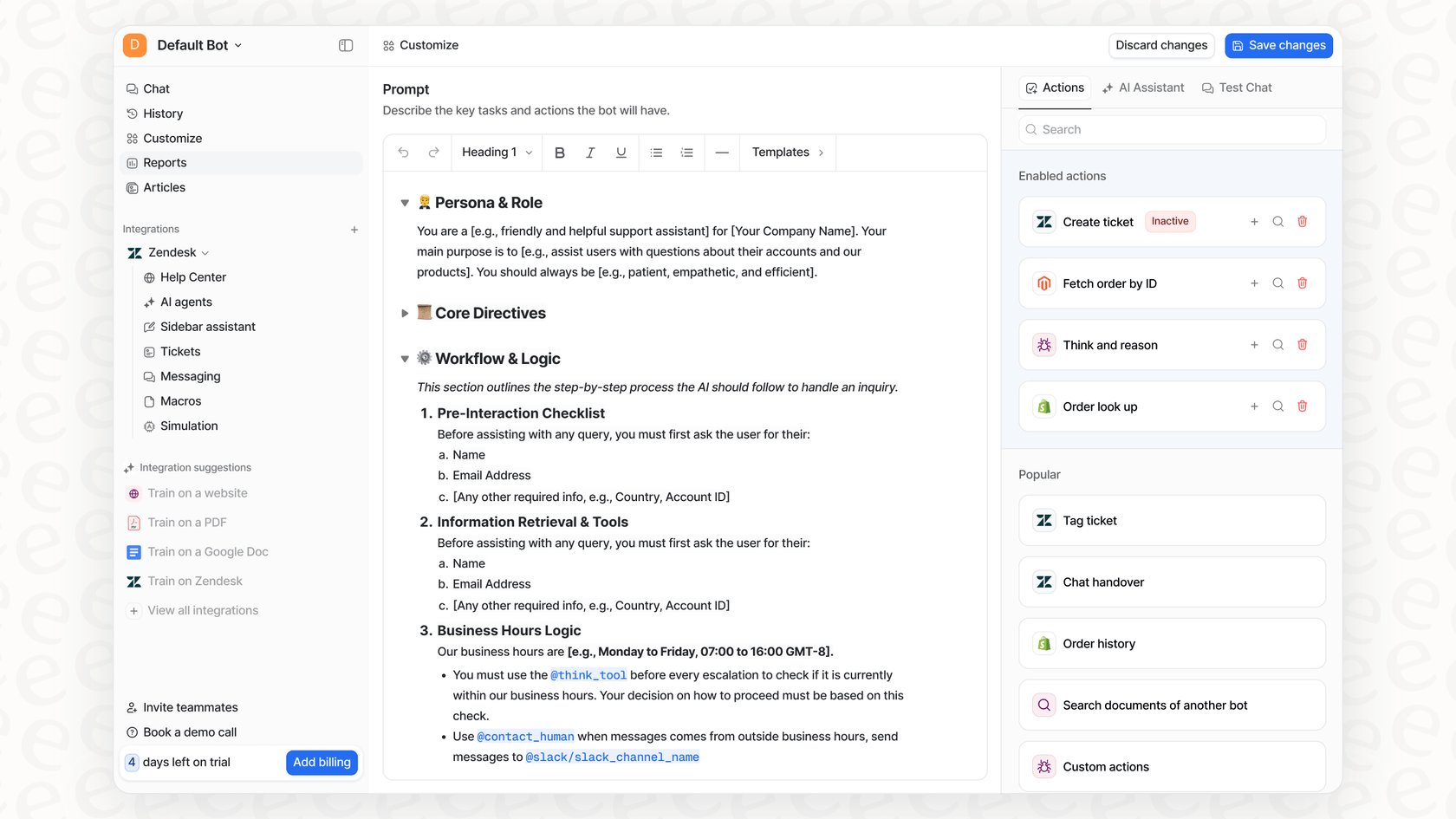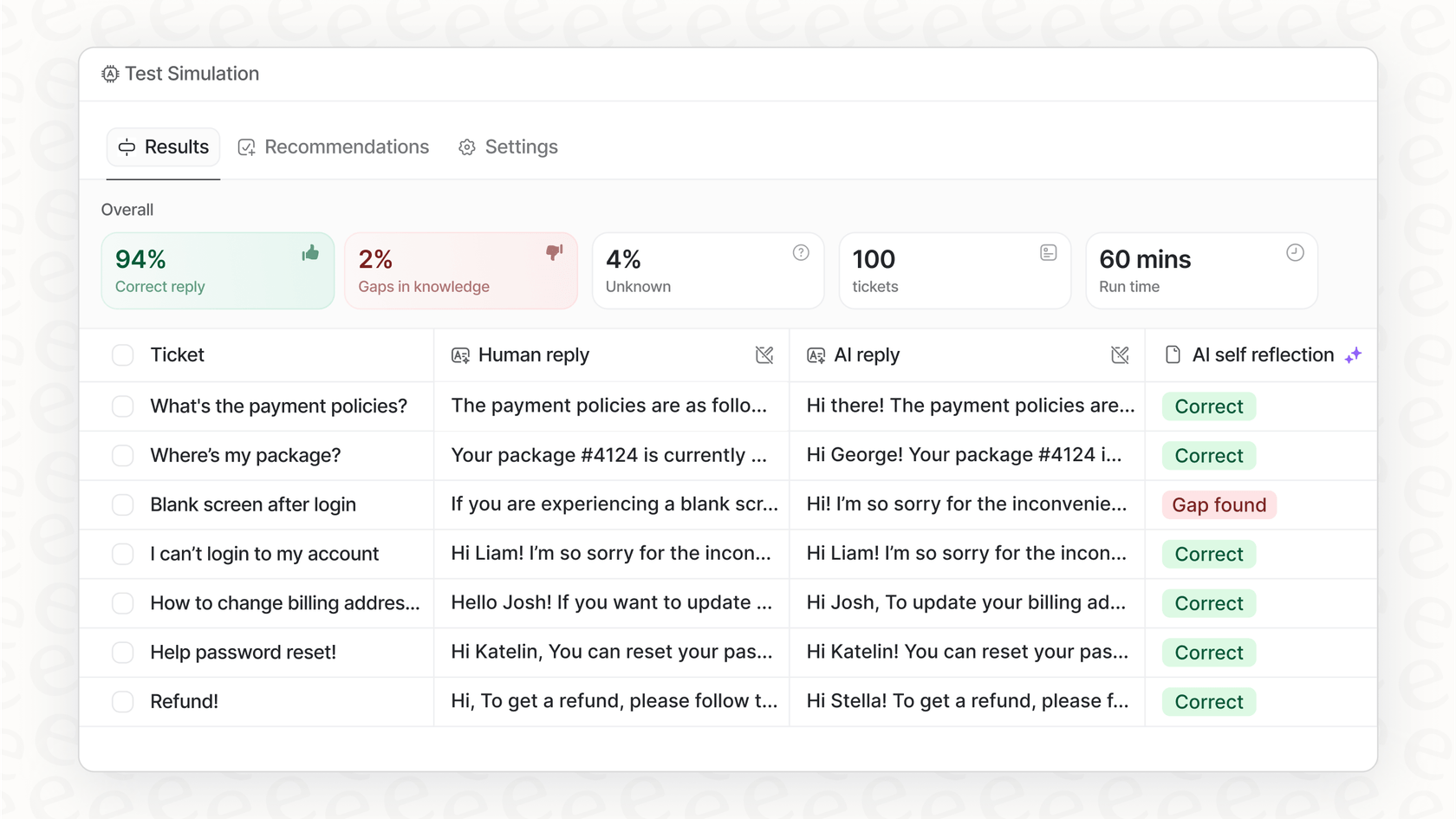
Trying to figure out how much a new tool will cost your team can feel like you're navigating a maze in the dark. You find a promising AI platform like Markprompt, you think it could be a great fit, but when you look for the price, all you find are "Request a demo" and "Contact sales" buttons. It's a common frustration, and it makes it nearly impossible to compare your options or even know if a tool is in your budget without getting on a sales call first.
This guide is here to help you cut through that confusion. We’re going to pull back the curtain on what's known about Markprompt AI pricing, break down the features you're actually paying for, and see how it stacks up against other options. The goal is to give you the clarity you need to decide if Markprompt is the right move, or if a more straightforward, self-serve tool would work better for your team.
What is Markprompt AI?
So, what is Markprompt, really? It’s an AI platform aimed at large companies, designed to help automate and improve their customer support. It's especially geared toward businesses in technically tricky fields like developer platforms and fintech, where getting the details right and staying compliant is a huge deal.
At its heart, Markprompt is a collection of AI agents built to handle customer questions across different channels. This means it can automate email and chat replies, manage voice support, and route support tickets to the right person. It also has tools that help human agents by drafting responses and pulling up information right inside help desks like Zendesk and Salesforce.
While it's a pretty powerful platform for big enterprises, its focus on custom setups and a developer-first, API-heavy approach means it can take a lot of time and technical know-how to get going. That’s an important thing to keep in mind as we start talking about the money side of things.
Unpacking Markprompt AI pricing: What we know
Alright, let's get straight to it: Markprompt doesn't publish its pricing online. If you're hunting for a clear Markprompt AI pricing page with different tiers and feature lists, you’re not going to find one. Instead, you have to get in touch with their sales team for a custom quote.
This "contact us for a price" model is pretty common with software built for large enterprises, but it has some real effects on you as a buyer:
-
You have to go through a sales process. You can't just sign up and start trying things out. You need to schedule discovery calls and sit through demos before you even get a number, which can easily eat up days or weeks.
-
The price is a moving target. The cost is customized based on your company's size, how many support tickets you get, and which features you need. This makes it impossible to budget with any accuracy until you're deep into their sales cycle.
-
It’s hard to predict the real cost. Without transparent tiers, you don't know if there are hidden costs, like extra fees for every ticket resolved or charges for certain integrations, that might show up down the line. Some third-party review sites mention a starting price of around $120 a month, but that's probably for a very basic plan that doesn't reflect what a typical business would actually pay.
The real "cost" of a tool isn't just the monthly invoice. It's also the time your team sinks into sales calls, the developer hours needed to get it set up, and the mental energy spent on an unpredictable billing model.
This is where a different approach can make a world of difference. For teams that want to get things done quickly and keep a tight grip on their budget, transparent pricing is a must. Platforms like eesel AI are built on this idea, offering clear, public pricing tiers. You know exactly what you’re getting and how much it costs, so you can get started in a few minutes, not a few months.
Key features included with Markprompt
When Markprompt sends over that custom quote, it's for a powerful set of features built for the enterprise world. Let’s break down what your investment usually covers so you can get a better sense of its value for your team.
Specialized AI agents
Markprompt gives you different AI agents for different jobs: Email Agents for tackling backlogs, Chatbots for live support, Voice Agents for phone calls, and so on. This specialized approach lets you really customize how each channel works.
But here's the catch: managing, setting up, and keeping all these different agents consistent can become a full-time job for someone on your team. This extra work is a hidden cost that adds to the total investment needed to actually make the platform work for you.
API-first design
One of Markprompt's big selling points is its API-first design. They give developers a bunch of tools (SDKs, libraries, and components) to (https://opentools.ai/tools/markprompt). For companies that have plenty of engineering resources, this offers a ton of flexibility.
The downside? This can be a huge bottleneck for the support teams who are supposed to be using the tool. If every little change, like tweaking a prompt or adding an integration, requires a developer to write code, it slows everything down. Your support leads can't truly own their tools, which can stifle your ability to adapt to what your customers need.
Enterprise-grade security
Markprompt puts a lot of emphasis on its security features, like its SOC 2 Type II certification and GDPR compliance. For big financial companies or public corporations, these are often non-negotiable.
While this is definitely important for some, that level of custom security and compliance comes at a premium. Many businesses can hit their security targets without paying for the kind of bespoke setup that drives up the cost of enterprise software. It's worth asking yourself if you'd be paying a premium for features that, while nice to have, might be overkill for what you actually need.
An alternative to the Markprompt AI pricing model: How eesel AI compares
For teams that care about speed, control, and clarity, the opaque, developer-reliant model of enterprise AI just doesn't always work. This is where eesel AI comes in with a totally different way of thinking, one that's designed to empower support teams directly.
Go live in minutes with clear, predictable pricing
The most obvious difference is the approach to pricing and getting started. With eesel AI, you don't have to guess what you'll pay or wait around for a sales rep to call you back.
| Feature | Markprompt | eesel AI |
|---|---|---|
| Pricing Model | Custom Quote (Contact Sales) | Transparent Tiers (view pricing) |
| Billing Structure | Unknown (Likely custom/annual) | Monthly or Annual (cancel anytime) |
| Hidden Fees | Potential for per-ticket fees | No per-resolution fees |
| Onboarding | Requires sales calls & demos | Self-serve, go live in minutes |
With eesel AI, you can sign up for a free trial, connect your helpdesk in a single click, and start building your AI agent whenever you want. The pricing is based on features and overall use, not how many tickets you resolve, so your bill is always predictable. You’re never penalized for being successful at automation.

Full control for support teams, not just developers
While Markprompt is built for developers, eesel AI is built for support pros. It replaces the need for code with a powerful but intuitive workflow engine that anyone can figure out.

You can use the no-code prompt editor to define your AI's exact personality, set up specific rules for which tickets get automated, and easily tell it which knowledge sources to use. This puts the power back into the hands of the people who know your customers best: your support team. They can build, test, and launch automation without ever having to ask the engineering team for help.
Test with confidence before you go live
One of the biggest worries with AI automation is the fear of it messing up with a real customer. eesel AI tackles this head-on with its simulation mode, a really helpful feature that you don't always see in traditional enterprise tools.

Before you turn your AI agent on, you can run it against thousands of your past tickets in a safe environment. You'll see exactly how it would have replied, get a solid forecast of its resolution rate, and spot any gaps in your knowledge base. This lets you de-risk the whole process, fine-tune everything, and roll out your AI feeling completely confident. You can start small and scale up as you see it working.
Is the Markprompt AI pricing model right for your team?
At the end of the day, Markprompt is a solid platform, but it’s built for a very specific crowd: a large enterprise with a big technical team, a long runway for implementation, and a budget for a fully custom, sales-driven solution.
For most teams, though, that model just creates headaches. The lack of transparent pricing, the mandatory demos, and the heavy reliance on developers can slow you down and lead to unpredictable costs.
For teams looking for a powerful AI support tool that’s transparent and easy to use, eesel AI offers a much smoother path. It gives you value right away, puts your support team in the driver's seat, and provides the predictable pricing and risk-free testing you need to get things done.
Get started with AI support today
Don't wait on sales calls and demos to see what AI can do for your team. Find out for yourself how easy it is to connect your tools and start automating your support workflows in minutes.
Frequently asked questions
Markprompt does not publish its pricing online. To get information on Markprompt AI pricing, you need to contact their sales team directly for a custom quote tailored to your specific needs.
Markprompt AI pricing is customized based on several factors, including your company's size, the volume of support tickets you handle, and the specific features or integrations you require. This makes the cost variable.
The blog suggests that without transparent tiers, it's hard to predict all costs. There could potentially be additional fees for resolved tickets, specific integrations, or ongoing developer resources needed for maintenance and updates, which aren't always clear upfront in Markprompt AI pricing.
Yes, due to its API-first and custom setup approach, Markprompt often requires considerable time and technical expertise for implementation. This involves developer hours for integration and configuration, which adds to the overall investment beyond the quoted Markprompt AI pricing.
Markprompt is primarily designed for large enterprises with substantial technical teams and budgets. Its custom, sales-driven model and extensive setup requirements mean that Markprompt AI pricing might be less suitable and potentially cost-prohibitive for most small to medium-sized businesses.
To get a Markprompt AI pricing quote, you generally need to engage in their sales process. This involves scheduling discovery calls, discussing your company's specific needs, and sitting through demos before they provide a customized pricing proposal.
Share this post

Article by
Kenneth Pangan
Writer and marketer for over ten years, Kenneth Pangan splits his time between history, politics, and art with plenty of interruptions from his dogs demanding attention.







